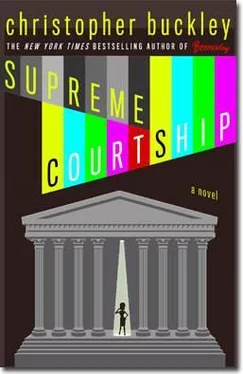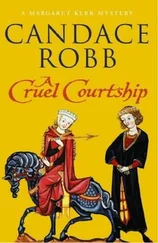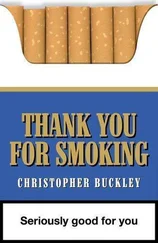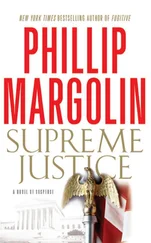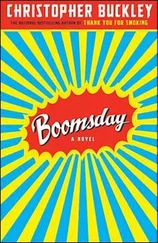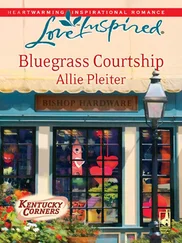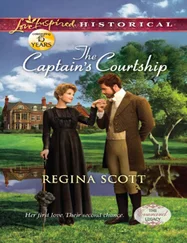Crispus Galavanter was second in juniority to Pepper. He occupied the “black seat” on the court, though it is seldom openly referred to as such. He had first come to prominence in an unusual way: by taking on the Ku Klux Klan-Web site slogan: “Bringing a Message of Hope and Deliverance to White Christian America! A Message of Love NOT Hate!”-as a client.
The Klan had wanted to open a store in a mall in suburban Boise, Idaho, where it could sell Klan notions and memorabilia, his and hers ceremonial robes and caps, dinner-table flaming crucifix candelabra, hangman noose light switches, Third Reich memorabilia, reissues of The Protocols of the Elders of Zion, manuals on breeding pit bulls and Alsatians, and other heartwarming gewgaws. The mall owners, however, perhaps seeking a more elevated tone, refused to rent them space.
Crispus, then a young local attorney, volunteered to handle the Klan’s case “for costs.” The Klan was initially somewhat taken aback, but after some head-scratching and palavering decided what the heck, they might look kind of good in court if they had themselves a smart “colored” lawyer, so they said, okay, just so long as we don’t have to eat with you or share bathroom facilities, and forget about dating any of our daughters. No problem at all, Crispus said. Put it out of your minds. You concentrate on spreading that message of love to White Christian America and let me deal with these small-minded mall owners.
He was brutally pilloried in the press for his efforts on behalf of the Idaho Klan, accused of all manner of outrageous grandstanding, called all sorts of names, about the mildest of which was Black Judas. Through it all Crispus smiled and kept his head down and diligently argued his client’s case. He framed it as a civil rights case and fought it all the way up to the Idaho Supreme Court.
In his argument before the state’s highest court, Crispus eloquently championed his client’s views on the superiority of the white race; Jewish control of the media, the international banking system, and bottled drinking water; the Vatican’s secret deal with NASA to put a Catholic on Mars; and Occupational Safety and Health Administration regulations that required filling out endless, unnecessary paperwork before burning a cross on public land. By the time Crispus was finished, he had all the judges doubled over with laughter. They ruled in favor of the mall, made the Klan liable for the mall owners’ legal costs. Crispus thereupon smiled and presented the Klan with a bill that, coincidentally, amounted to one dollar more than it had in the bank. It filed for bankruptcy.
When questioned about whether his representation of the Klan was consistent with a lawyer’s duty to represent his client vigorously, Crispus would say that he had made precisely the arguments the Klan had wanted made, and that the fee he had charged was reasonable. As for the Klan, it was entitled to full consideration of its legal claims, and that legal consideration had destroyed it.
Crispus was appointed to the federal bench and a few years later moved on up to the high court. He golfed with Tiger Woods.
Three years earlier, a man named Jimmy James Swayle had walked into the Rough River Savings and Trust Bank in Hotbridge, South Dakota, and presented the teller with a note written in incongruously polite language. Pleace hand over $TEN THOUSDAND or I will be compelt to shoot the poor customers. Sorry for the inconvenients. Hurry up OK.
The teller duly activated the silent alarm and, reciprocating Mr. Swayle’s politeness, insisted on counting out his request in one- and five-dollar denominations, apologizing for not having larger bills. Presently, Sheriff’s Deputy Edward Fogarty entered the bank with drawn shotgun and commanded Mr. Swayle to drop his weapon and lie facedown on the floor. Mr. Swayle pointed his pistol at Deputy Fogarty and pulled the trigger. The gun, a Rimski 9mm semi-automatic, failed to fire. Deputy Fogarty walked over to Mr. Swayle, gave him an understandably robust butt in the face with the shotgun, and hauled him unconscious off to the pokey.
After a not very long trial, Jimmy James Swayle was found guilty of attempted armed robbery and murder and sentenced to twenty-five years. And there, but for the genius of the American legal system, the books might have quietly closed on a not distinguished criminal career. However…
… a second-year law student doing a project at the state penitentiary advised Mr. Swayle to file suit against the Rimski Firearms Corporation on the grounds that their product, which he had legally purchased, had failed to function properly “during a business transaction,” causing him not only loss of income but also significant psychic and physical distress, entitling Mr. Swayle to damages under South Dakota law. Since Mr. Swayle was a citizen of South Dakota and Rimski was a Connecticut corporation, Mr. Swayle was able to bring suit in federal court. The case had worked its way up the judicial ladder from the district court, the Court of Appeals, and had finally fetched up on the steps of the U.S. Supreme Court.
Mr. Swayle’s petition for certiorari was just one of about 7,000 the Court receives each year asking to be considered for review. The justices accept only seventy or so of these for oral argument. Four justices have to agree to grant cert in order for a case to be accepted. Generally, the Court accepts only cases that it finds interesting; but sometimes a “what the hell” element seems to come into play. Justices look solemn in their formal black robes, but every so often they like to have a little fun by taking on a strange case, or overturning a presidential election, that sort of thing.
One of Haro’s clerks, knowing of his justice’s zest for embarrassing firearms manufacturers, yanked the Swayle petition from the cert pool pile and brought it to his attention. Haro immediately signed on. Justice Galavanter, who liked a little mischief himself, added his signature. Though it went against her Yankee instincts, Swayle v. Rimski Firearms somehow appealed to Justice Plympton. She had written for the majority in Lestrepo v. Tompkins Compressed Air Injector. In that closely watched case, the Court ruled that Tompkins, based in upstate New York, was not responsible when one of its air compressors, used at a facility in Alabama, overinflated 10,000 beach balls manufactured in Oregon. Tompkins wasn’t liable, the Court found, because Mr. Lestrepo, a worker inflating the beach balls at the Alabama facility, was an illegally employed alien who couldn’t read the English instructions on the air injectors. It was a controversial ruling, to be sure, and emotionally fraught, since beach balls had been exploding all over the country, ruining picnics, making children cry, and inducing fourteen heart attacks. Plympton approved Swayle’s cert petition. Barry Jacoby, an ardent foe of gun manufacturers, added the fourth signature, and in due course Jimmy James Swayle got word that his case would be heard by the U.S. Supreme Court. This is a big moment in your day if your days-all 9,125 of them-tend to be quite similar: up bright and early, avoid being stabbed for your packet of breakfast jelly, work in the prison laundry, avoid being anally penetrated in the showers.
“Do I get to go to Washington, Warden?”
“No, Swayle. You aren’t going anywhere.”
“But what if I win?”
“Then I’m gonna beat the shit out of you. Now get out of my office.”
News that the Court had granted cert in Swayle v. Rimski caused an immediate stir. The Coalition Against a Runaway Judiciary, a Washington-based watchdog group, stridently denounced it.
“By agreeing to consider this case,” declared Fortinbras P. Fescue, executive director, “the Court sends a chilling signal up and down the spine of law enforcement officers throughout the country.” The Fraternal Order of Police also denounced it. On the other side, the American Foundation to Bankrupt Gun Manufacturers made approving noises.
Читать дальше
